 We have designed a GPS location-based Alarm and alert system using ESP board.
We have designed a GPS location-based Alarm and alert system using ESP board.
On many occasions, we find ourselves making shopping lists or planning tasks that rely on specific locations. However, in such situations, we often forget about these plans. In such instances, we often desire a device that can provide location-based alarms and alerts. For example, if we intend to purchase medicine from a pharmacy on our way back from the office, we might forget about it.
This hypothetical device would notify and alarm us when we are in close proximity to the pharmacy, reminding us to buy the medicine.
Similarly, this device would provide alerts and alarms as we reach various locations, such as restaurants, bookshops, malls, or medical stores, ensuring that we remember our planned tasks related to those locations.
Furthermore, this device could be used as an assistive tool for individuals such as children, patients, or visually impaired individuals. It would provide alerts when they approach specific places like bus stops, parks, homes, or workplaces, assisting them in their daily activities.
So let’s start designing this GPS-based alert system with the shopping of the following components
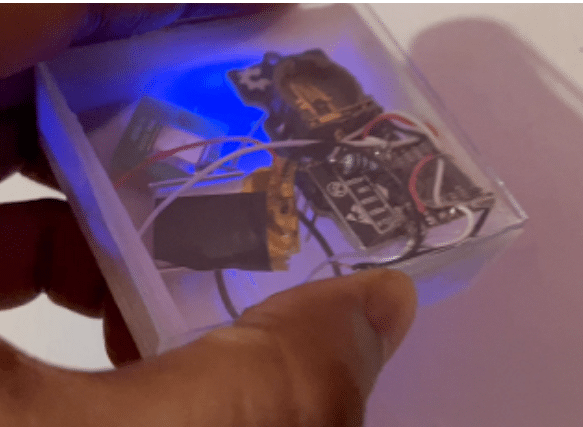
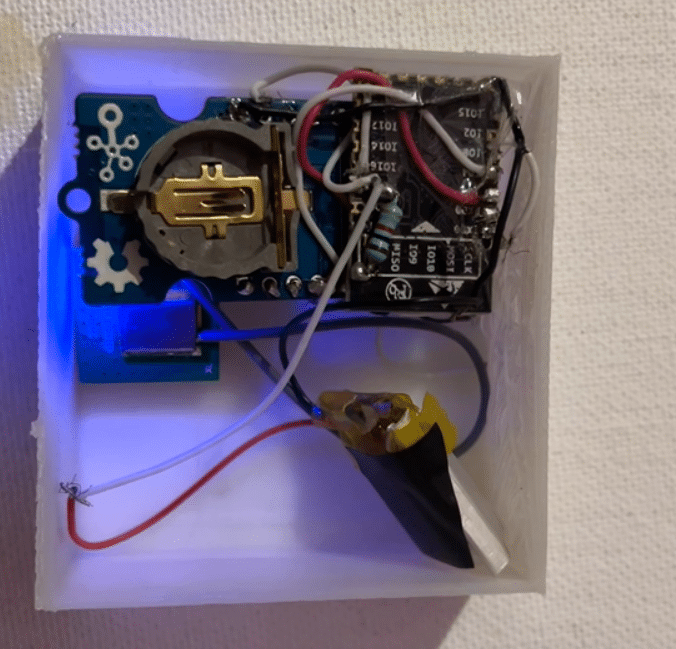
Bill of Material

Note:- In case the ESP12 chip is being used, a programmer or FTDI USB converter is needed. If the dev board is being used, programming can be done directly on the board.
Coding
The ESP board has to be installed and configured in the Arduino IDE. The Ting GPS library has to be installed for coding. AIR 530 uses GPS module to send data via serial communication. Any free pin of the ESP12F chip can be used for software. Here the 4th and 5th pins are used as a receiver and transmitter for the serial port. The baud rate is set to 9600 as per AIR 530.
Also Check: GPS based vehicle tracking system
Since the setup function is created, next comes the loop function. After extracting data from the GPS, the latitude and longitude are set to the location of the place. Using the ‘if’ condition, the distance from our current location to destination is calculated. If the distance is less than 200m, the digital pin is marked ‘high’, alerting us using a vibration motor or a buzzer. Hence when we are close to the grocery store or any specific place needed, the alert helps us remember our tasks.
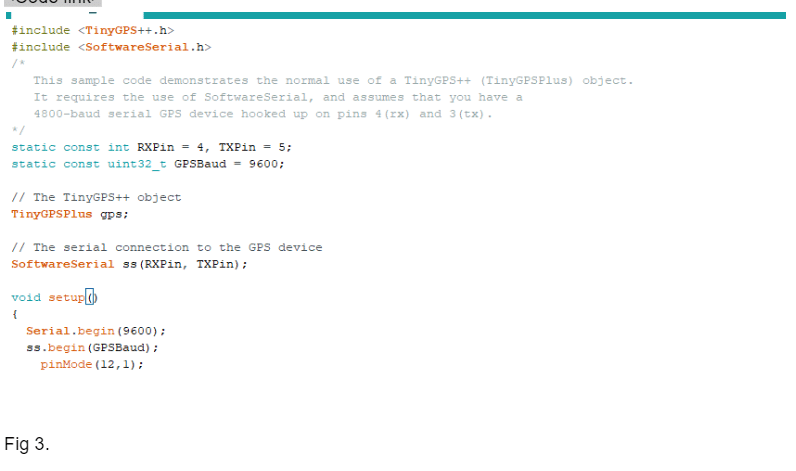
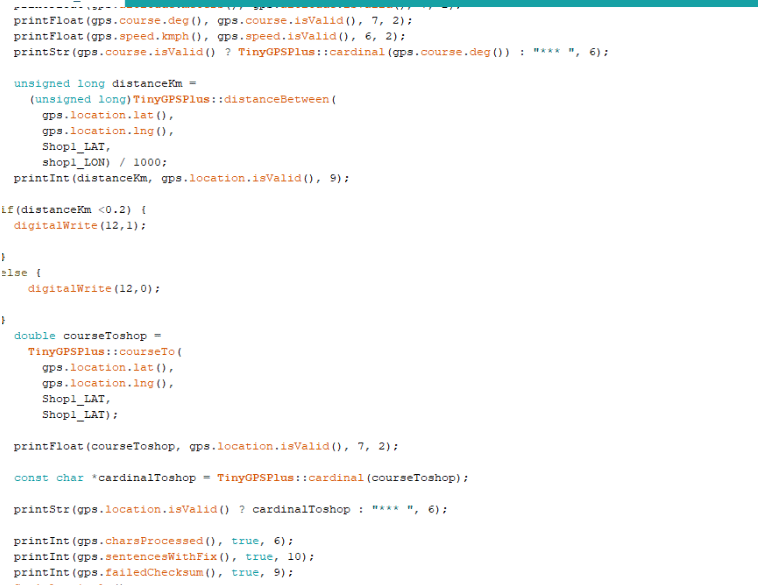
GPS Location-Based Alarm – Connection
The code is uploaded to the ESP CHIP using FTDI or Programmer. Connecting GPIO 0, the chip enters the programming mode.
The GPS, ESP chip and battery are connected as seen in figure 5. The components are placed in the enclosure. The enclosure can be any 3D design, one is shown in Fig 6.
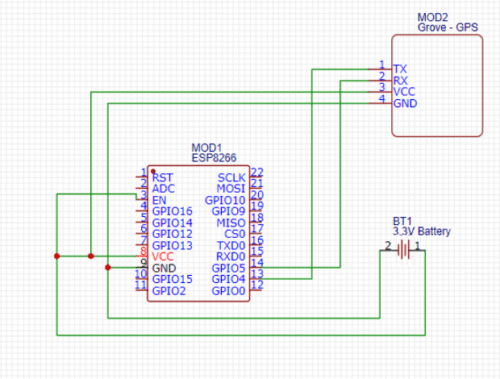
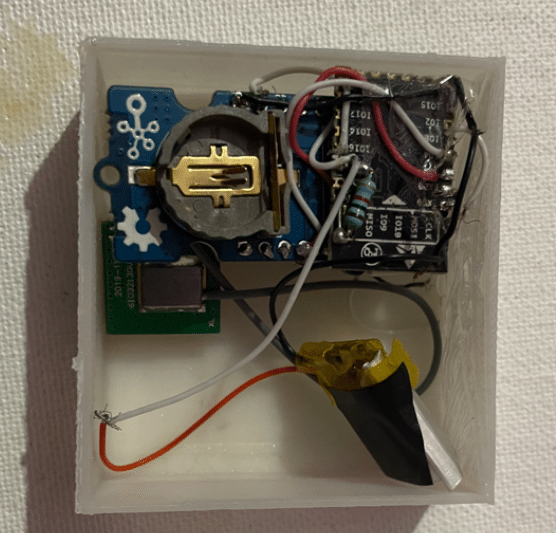
Testing
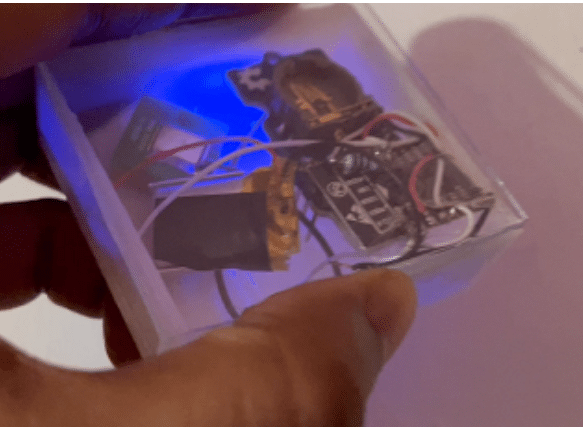
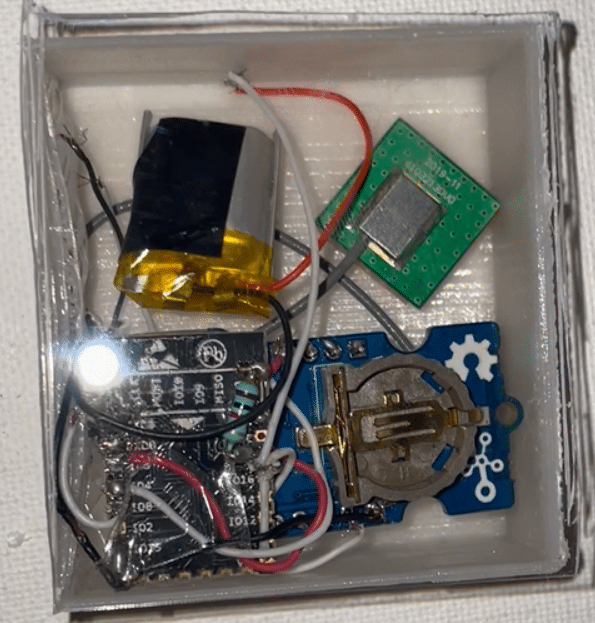
The device is powered with a 3.3V battery. It connects to the GPS after a few minutes. Once fixed and the satellite gets your current location. As you move around, you would notice the buzzer ring when your location is within 200m of the desired location. In this manner you could programme your desired location in the code and use the device to alert you when you run errands. Note that the number of desired locations is not restricted to 1, in this project.










Sir, Thank you very much for the useful project.
According to the battery symbol of BT1, pin number 2 should be positive and pin number 1 should be ground.